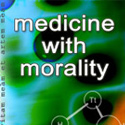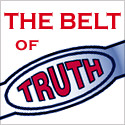“O my God”
“O my God”
It is a reflection on our culture that this phrase is so annoyingly repeated and that a person’s vocabulary can be so limited.
And, yes, it is another blasphemy and it is distressing that its use has no significance except as an expression of surprise or indignation or amazement instead of something rational like “that is so good/ bad/amazing”.
But it’s worse – or at least it should be.
“O my God” in scripture is most frequently used as a cry – a prayer – of distress and pleading with God.
The closest we might get in common use would be an expression of anguish in relation to Germanwings 4U9525 deliberately flown into the mountainside.
For me the expression “dear Lord” is one I silently express in such circumstance, such as when a child is run over by a reversing car driven by a parent. For me this is a genuine cry of distress directed to my Lord and my God – and submission. But even “dear Lord” has been trivialised in the past.
In this present time, when we are facing widespread and indiscriminate terrorism and uncertainty we really do need to have an attitude of “O my God” in terms of a cry of distress and plea for divine help. Hopefully for many this would reflect at least a God consciousness.
For the Christian our sense of grief should be more in light of the increasing attacks on our faith, our freedom to believe, to speak of what we believe, to teach what we believe and to live in accord with those beliefs.
For the prophet Daniel in his agonising prayer of shame and repentance and desperation the phrase “O my God” or “O Lord our God” or “O Lord” is used 11 times (Daniel 9 v3-19).
For us, in this peculiar mix of grief for suffering in our world and yet joy for what we have, “O my God” should be a recognition of Who we serve, Who we belong to, and to Whom we can commit each day.
Should we respond? Should we attempt a response to those who use this sacred cry in a trivial or God-denying way?
I think we should – a lot more frequently than seems to be at present. The response can be gentle or in some circumstances more confrontational or condemning as was Jesus in the temple.
So how should we respond?
It might be “please, that is my Father you are both addressing and yet ignoring”, perhaps followed by “please respect me and my Father by not saying it.”
It might be “please be aware you are addressing the Creator of the universe in a disrespectful way” or “you are addressing the Creator of the universe, my God, to whom I belong and to whom I owe everything.”
If it is to a child or person under our care then we may be more definite in our instruction not to use the Name of the Lord God “in vain” (Exodus 20 v7; Deuteronomy 5 v11) and to let our “yea be yea and our nay be nay”, for our speech to be simple “yes or no” (Matthew 5 v37; James 5 v12).
May you, O Lord our God, help us to honour your Name in all we say and do.
Lachlan Dunjey. 30 March, 2015.






